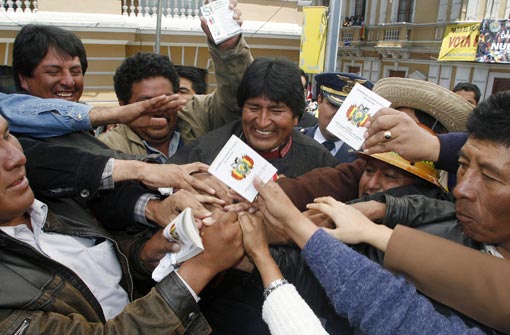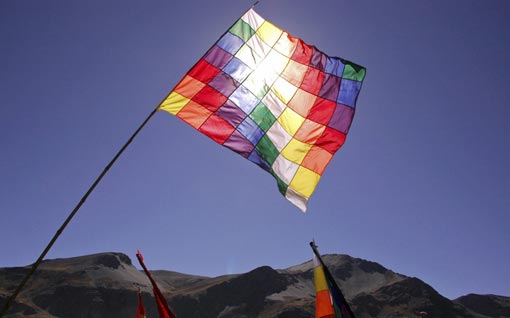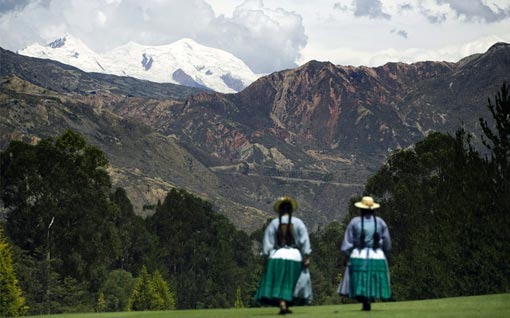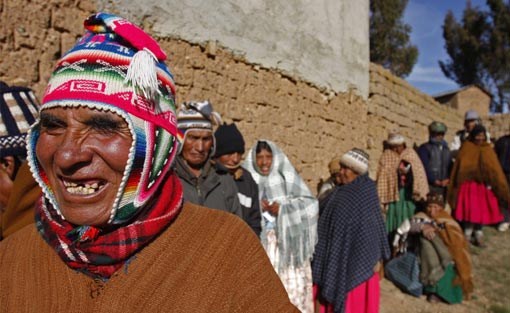You are hereBolivia's first indigenous President enacts new constitution, empowers indigenous majority, allows for land reform /
Bolivia's first indigenous President enacts new constitution, empowers indigenous majority, allows for land reform

(quote)
Bolivia's President Evo Morales has enacted a new constitution that aims to empower the country's indigenous majority and allows for land reform. Mr. Morales is Bolivia's first indigenous president.
On January 25th, Bolivia held a referendum to adopt a new national constitution, one that dramatically shifts the country, reversing discriminatory practices and granting many rights and self-determination to the 36 indigenous nations within Bolivia. After a lengthy count, officials announced that the referendum passed with over 60% of the vote.

Much political and legal work remains to implement the changes, but soon most of the country's natural resources will be state-owned, land ownership will be capped at 12,000 acres, and Morales will be able to run for a second term. President Evo Morales welcomed the constitutional win by saying "Here begins the new Bolivia", claiming the changes would work to "decolonize" Bolivia.

Key Reforms:
Re-election: Allows Mr. Morales to stand for re-election in Dec 2009
Indigenous rights: Stresses importance of ethnicity in Bolivia's make-up. A whole chapter devoted to indigenous rights
Autonomy: Power decentralized, four levels of autonomy - departmental, regional, municipal and indigenous
Resources: Sets out state control over key economic sectors, state sovereignty over vast natural gas fields
Judiciary: Indigenous systems of justice same status as official existing system. Judges will be elected, and no longer appointed by Congress.
Land: New limit on ownership 5,000 hectares (12,355). But measure not retroactive.

Support for Mr Morales' constitution was highest in the western highlands where the country's indigenous majority is concentrated.
The document gives sweeping rights to Bolivia's 36 indigenous groups in the areas of government, the judiciary and land holdings. It also allows agrarian land reform to take place by limiting the size of rural landholdings in future sales.

But the polarization that has dogged the country since Mr. Morales took office in 2006 is unlikely to diminish, say correspondents. Many Bolivians of European or mixed-race descent in the fertile eastern lowlands, which hold rich gas deposits and are home to extensive farms, rejected the constitution. The referendum failed to attract support in the opposition strongholds of Santa Cruz, Tarija, Beni and Pando.
(unquote)
Photos courtesy of AP Photo/Dado Galdieri, Reuters / Daniel Caballero, José Luis Quintana / AFP / Getty Images, Joao Padua / AFP / Getty Images, and AP Photo / Juan Karita
Original Source: Boston Globe and BBC News
Reply








